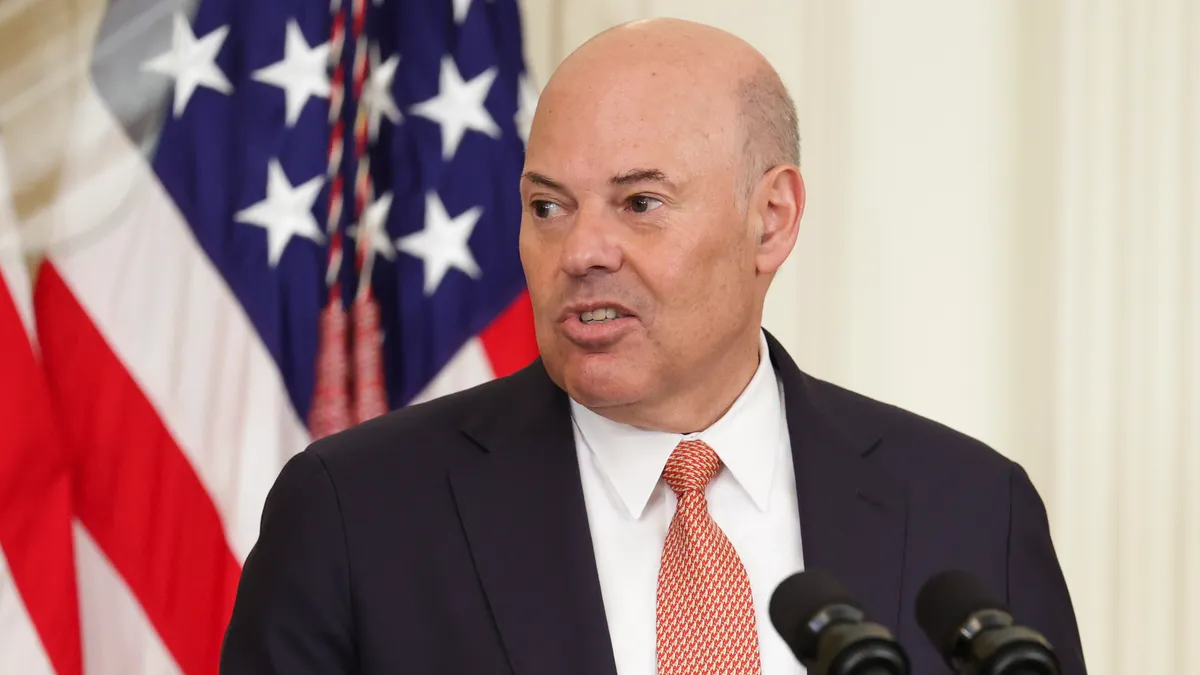Dive Brief:
- A federal district court in California refused on April 22 to dismiss a former employee’s lawsuit against the U.S. Postal Service alleging she was harassed and discriminated against because she is a transgender woman (Scannell v. DeJoy).
- When the employee started working at USPS’s Culver City station, she presented as a man while privately undergoing gender transition, according to court documents. After a co-worker saw a photo of her on a messaging app and outed her, other employees called her homophobic slurs, shared unwanted personal information and made threats, she alleged. The station postmaster then allegedly removed her from a supervisory role and replaced her with someone who wasn’t outwardly gay or transgender.
- The employee was briefly able to transfer to another station but ordered back to Culver City, court documents said. Fearing this would exacerbate her depression, she allegedly requested leave as an accommodation but never got a response. Ultimately, she resigned, citing intolerable working conditions, and sued the USPS for subjecting her to a sex-based hostile work environment in violation of Title VII of the Civil Rights Act of 1964 and for disability discrimination under the Rehabilitation Act, among other charges.
Dive Insight:
Experts have cautioned employers that despite the Trump Administration’s order requiring federal agencies to recognize “the biological reality” of two sexes — male and female — and the EEOC’s corresponding retreat from enforcing the federal employment rights of LBGTQ+ individuals, Title VII still prohibits these rights from being violated.
The U.S. Supreme Court clarified this in a 2020 ruling, Bostock v. Clayton County, which held that Title VII’s ban on sex discrimination in the workplace includes protections for sexual orientation and gender identity, Tripp Scott attorneys Paul Lopez and Brittany Hynes explained in a February op-ed to HR Dive.
It’s important for employers “to acknowledge that discrimination against transgender and nonbinary individuals remains illegal under federal law, as well as under many state and local laws, and employers need to continue to take measures to ensure that these rights are protected,” Lopez and Hynes wrote.
“Unless the Bostock decision is reversed, employers can anticipate that charges of discrimination based on sexual orientation and gender identity will continue to be filed,” the attorneys said.
In this case, the Postal Service didn’t assert that the employee wasn’t protected by Title VII. Instead, it made a procedural argument — that certain allegations had to be struck from the lawsuit because they were based on “discrete acts” and discrete acts can’t form the basis of a hostile work environment claim.
The court disagreed and allowed the employee to include the allegations in her lawsuit.
In a 2002 decision, Nat’l R.R. Passenger Corp. v. Morgan, the Supreme Court explained that a “discrete discriminatory act,” such as a termination, failure to promote, denial of transfer or a refusal to hire, is a distinct action that occurs on the day it happened.
By contrast, a hostile work environment claim “is composed of a [series] of separate acts that collectively constitute one ‘unlawful employment practice,’” the justices said.
However, they didn’t specifically hold that allegations of discrete acts could not support a hostile work environment claim, the district court noted here.
Rather, based on a February ruling by the 9th U.S. Circuit Court of Appeal, the district court denied the USPS’s motion to dismiss the allegations of discrete discriminatory acts.
In the 9th Circuit case, the appeals court, which covers federal cases in California, Alaska, Arizona, Hawaii, Idaho, Montana, Nevada, Oregon and Washington state, found that an alleged discrete act can also be “part of the series of actions that cumulatively constituted a hostile work environment,” the district court said.
The court also rejected the Postal Service’s argument that allegations pertaining to three incidents were barred due to the employee’s failure to seek timely EEO counseling. These included: the order to return to Culver City; not providing the employee with leave for her depression; and charging her with AWOL when she missed work because of the depression.
Additionally, the court refused to dismiss the employee’s claims that a Postal Service EEO counselor retaliated against her by allegedly waiting to process one of her claims until after the deadline had passed and by allegedly encouraging her representative to withdraw her EEO case.












